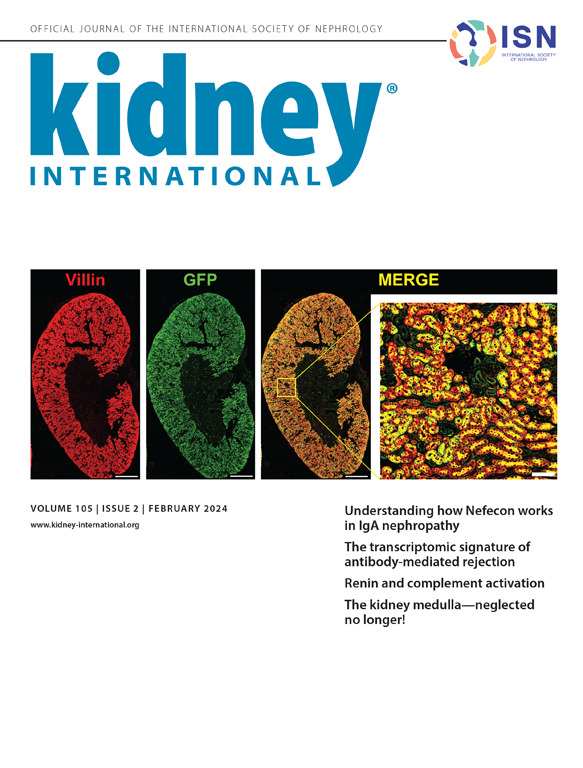Progress, challenges, and pragmatic concessions in predicting relative risk of kidney survival in ARPKD
IF 14.8
1区 医学
Q1 UROLOGY & NEPHROLOGY
引用次数: 0
Abstract
Autosomal recessive polycystic kidney disease is rare, with heterogeneous disease progression toward kidney failure. Risk stratification tools are needed to identify patients at higher risk of progression. Burgmaier et al. developed a relative risk score model in the international ARPKD registry for children older than 2 months of age without kidney failure. Their regression-based model included 5 predictors and yielded a simple prognostic score that classified “lower-risk” and “higher-risk” groups. Discrimination separating these 2 groups was good, but there are potential future opportunities for absolute risk prediction. We discuss considerations for the interpretation of relative risk scores and external validation of prediction models in rare diseases like autosomal recessive polycystic kidney disease.
预测ARPKD肾脏生存相对风险的进展、挑战和实际让步
常染色体隐性遗传多囊肾是一种罕见疾病,其病情发展不尽相同,最终导致肾衰竭。需要风险分层工具来识别进展风险较高的患者。Burgmaier 等人在国际 ARPKD 登记处为 2 个月以上无肾衰竭的儿童建立了一个相对风险评分模型。他们的回归模型包括 5 个预测因子,并得出了一个简单的预后评分,分为 "低风险 "组和 "高风险 "组。这两组的区分度很高,但未来有可能进行绝对风险预测。我们讨论了解释相对风险评分的注意事项,以及对常染色体隐性多囊肾病等罕见疾病的预测模型进行外部验证的注意事项。
本文章由计算机程序翻译,如有差异,请以英文原文为准。
求助全文
约1分钟内获得全文
求助全文
来源期刊

Kidney international
医学-泌尿学与肾脏学
CiteScore
23.30
自引率
3.10%
发文量
490
审稿时长
3-6 weeks
期刊介绍:
Kidney International (KI), the official journal of the International Society of Nephrology, is led by Dr. Pierre Ronco (Paris, France) and stands as one of nephrology's most cited and esteemed publications worldwide.
KI provides exceptional benefits for both readers and authors, featuring highly cited original articles, focused reviews, cutting-edge imaging techniques, and lively discussions on controversial topics.
The journal is dedicated to kidney research, serving researchers, clinical investigators, and practicing nephrologists.
 求助内容:
求助内容: 应助结果提醒方式:
应助结果提醒方式:


